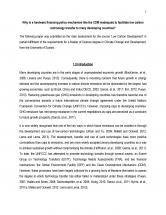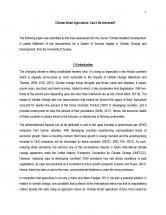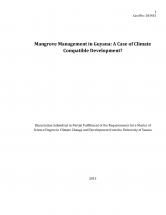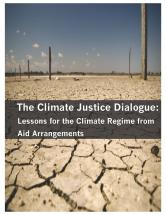
|
Why is a hardware financing policy mechanism like the CDM inadequate to facilitate low carbon technology transfer to many developing countries Mahendra Saywack - Why is a hardware financing policy mechanism like the CDM inadequate to facilitate low carbon technology transfer to many developing countries? |

|
Climate Smart Agriculture: Can It Be Achieved Mahendra Saywack - Climate Smart Agriculture: Can It Be Achieved? |

|
Mangrove Management in Guyana: A Case of Climate Compatible Development Mahendra Saywack - Mangrove Management in Guyana: A Case of Climate Compatible Development? |

|
The impact of hydro-meteorological hazards on crop production among small-scale farmers in Crofts Hill, Clarendon Dorlan Burrell - The impact of hydro-meteorological hazards on crop production among small-scale farmers in Crofts Hill, Clarendon |

|
The Climate Justice Dialogue: Lessons for the Climate Regime from Aid Arrangements Annlyn McPhie - The Climate Justice Dialogue: Lessons for the Climate Regime from Aid Arrangements |

